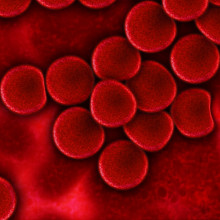We discover some likely explanations for the different blood groups seen in humans. Is there any reason for having one blood type over another? Do other animals have them too? Plus, we ask: why do horses, donkeys and zebras all make different noises?
In this episode

00:00 - Why do we have blood types?
Why do we have blood types?
We put this question to Dr Kenth Gustafsson, reader at the UCL Institute of Child Health in London...
Kenth - There are a number of different blood group systems, or histo blood group systems as it should be called, however, the one that we normally think of as the main human blood group system is the ABO system. These days, I think it's safe to say that most people in the blood group fields think that the ABO system has developed in the course of our interactions with pathogens, in other words, bacteria and viruses. The genetically controlled ABO blood groups are in most people, present in the stomach and the intestines.
Diana - So the same ABO antigens found on blood cells will also be found on some cells in the intestines.
Kenth - And this has led to some bacteria using them as receptors - to simply hang on perhaps, or even accessing into the body by that route, therefore developing a preference for some of these. Some examples would be cholera, campylobacter, E. coli 157 as well as also some viruses, for example norovirus which gives you gastroenteritis. But not all bacteria or viruses of one species or kind will necessarily bind to the same type of ABO - different strains within the same bacterial species may bind with different affinity to different ABO blood group structures. It's certainly clear that other primates, other than humans, also have the ABO blood group system, so it probably developed before the primate group diverged. And also, there are very similar looking blood group systems in other mammals as well, it's known for example that cows have a number of different blood group systems.
Diana - So, having certain blood types can provide you with some protection against certain strains of pathogen. Kenth also added that some bacteria and viruses will pick up the blood type of their last host so that when they invade a new host with a different blood type, their new host's antibodies recognise it and attack it.









Comments
Add a comment